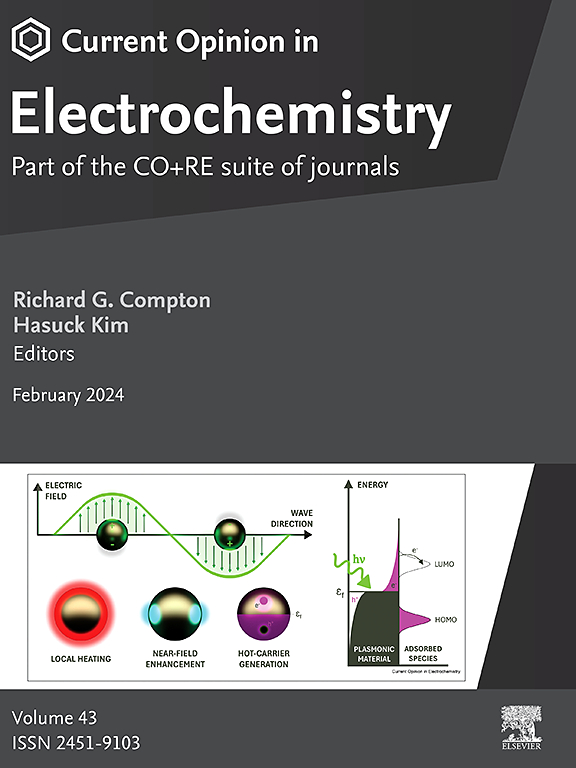Improving the selectivity of electrochemical CO2 reduction to multicarbon chemicals through microenvironment engineering
IF 6.9
2区 化学
Q1 CHEMISTRY, PHYSICAL
引用次数: 0
Abstract
Electrochemical carbon dioxide reduction reaction (eCO2RR) is a promising approach to reduce the concentration of CO2 in the atmosphere and produce value-added chemicals. Due to the high stability of CO2 and the complex reaction pathways, the selectivity and reaction rate of converting CO2 into high-value chemicals, especially multicarbon products, remain unsatisfactory for viable commercial applications. In conjunction with developing catalysts with high intrinsic activity and selectivity, engineering the microenvironment to which the catalysts are exposed has become a versatile and effective means to steer the reaction pathway toward desirable C2+ products with high selectivity and at a practically viable current density. This review provides an overview of recent advancements in steering eCO2RR toward C2+ on Cu-based catalysts through microenvironment engineering in the past two years. Selective examples are used to illustrate the efficacy of each microenvironment engineering approach. Perspectives on future research directions are also provided.
通过微环境工程提高电化学CO2还原对多碳化合物的选择性
电化学二氧化碳还原反应(eCO2RR)是一种很有前途的降低大气中CO2浓度和生产增值化学品的方法。由于CO2的高稳定性和复杂的反应途径,将CO2转化为高价值化学品,特别是多碳产品的选择性和反应速率仍然不理想,无法实现可行的商业应用。在开发具有高内在活性和选择性的催化剂的同时,设计催化剂所处的微环境已经成为一种通用而有效的方法,可以引导反应途径产生具有高选择性和实际可行电流密度的理想C2+产物。本文综述了过去两年来通过微环境工程将cu基催化剂上的eCO2RR转向C2+的最新进展。选择的例子来说明每个微环境工程方法的有效性。展望了未来的研究方向。
本文章由计算机程序翻译,如有差异,请以英文原文为准。
求助全文
约1分钟内获得全文
求助全文
来源期刊

Current Opinion in Electrochemistry
Chemistry-Analytical Chemistry
CiteScore
14.00
自引率
5.90%
发文量
272
审稿时长
73 days
期刊介绍:
The development of the Current Opinion journals stemmed from the acknowledgment of the growing challenge for specialists to stay abreast of the expanding volume of information within their field. In Current Opinion in Electrochemistry, they help the reader by providing in a systematic manner:
1.The views of experts on current advances in electrochemistry in a clear and readable form.
2.Evaluations of the most interesting papers, annotated by experts, from the great wealth of original publications.
In the realm of electrochemistry, the subject is divided into 12 themed sections, with each section undergoing an annual review cycle:
• Bioelectrochemistry • Electrocatalysis • Electrochemical Materials and Engineering • Energy Storage: Batteries and Supercapacitors • Energy Transformation • Environmental Electrochemistry • Fundamental & Theoretical Electrochemistry • Innovative Methods in Electrochemistry • Organic & Molecular Electrochemistry • Physical & Nano-Electrochemistry • Sensors & Bio-sensors •
 求助内容:
求助内容: 应助结果提醒方式:
应助结果提醒方式:


